What if you could recover more from your collections efforts—without sacrificing patient satisfaction? The key to achieving this is data analytics. In today’s healthcare landscape, it’s no longer just about recovering unpaid balances. It’s about doing it smarter, faster, and most importantly, more ethically. And the secret? Real-time insights that allow you to take action early, communicate better, and build trust along the way.
By leveraging real-time data and predictive analytics, healthcare providers can streamline their collections process, reduce outstanding debts, and enhance the patient experience. Instead of waiting for accounts to become problematic, data empowers a proactive, personalized approach—one that benefits both your organization and the patients you serve.
At NSB, we use data to help healthcare providers build ethical, efficient, and patient-friendly collection workflows that optimize revenue cycles, protect relationships, and ensure compliance.
Why Data Is a Game-Changer for Collections
Managing healthcare receivables involves everything from billing and insurance claims to collecting unpaid balances. Without visibility or a clear strategy, the process can quickly become disorganized, leading to delayed payments, increased write-offs, and strained patient relationships.
Today’s healthcare system faces a variety of challenges, from complex insurance plans to higher patient responsibility and growing administrative overhead. That’s why a smarter approach is essential—and that’s where data analytics comes in. With historical trends, real-time dashboards, and predictive modeling, healthcare providers can better understand payment behavior, prioritize outreach, and act before accounts turn delinquent.
Predictive Tools That Drive Results
Data analytics doesn’t just help you collect more; it helps you collect smarter. Here's how it works:
- Forecasting Risk: Predictive analytics helps identify accounts that are at high risk of non-payment, so your team can step in early to prevent issues before they escalate.
- Personalized Outreach: By understanding a patient’s financial behavior and communication preferences, you can tailor the way, timing, and tone of your outreach. Whether it's a gentle reminder or a more urgent follow-up, data lets you engage with patients in the most effective way.
- Real-Time Visibility: Dashboards and automated reports give you a clear view of where each account stands. This helps your team stay agile, take action quickly, and keep collections moving efficiently.
Data doesn’t just increase efficiency—it helps you create a more ethical and empathetic collections process that keeps patients at the heart of everything you do.
Smarter Collections with Patient Respect Intact
Collecting debts in healthcare is highly personal. Patients often already face financial hardship, confusion, or stress. Data helps you avoid the one-size-fits-all approach that can feel impersonal or harsh. Instead, it enables you to tailor communication in a way that’s fair, considerate, and respectful.
Imagine offering a patient a payment plan when they need more time, or sending a gentle reminder to someone who typically pays on time. With data-driven insights, you can maintain compassion while achieving better recovery outcomes.
That’s the beauty of ethical collections: putting patients first without sacrificing performance.
The Measurable Benefits of Going Data-Driven
The benefits of using data for healthcare collections go beyond just collecting more. Here’s how data-driven insights make a real impact:
- Improved Cash Flow: Predictive insights allow you to prioritize high-risk accounts for faster resolution, reducing Days Sales Outstanding (DSO) and boosting revenue.
- Lower Operational Costs: Focused outreach means less wasted effort and better staff allocation, cutting down on operational overhead.
- Stronger Compliance & Risk Management: Real-time monitoring ensures your efforts stay HIPAA-compliant and helps you catch issues early.
- Smarter Patient Communication: With data, you can pinpoint the best time, tone, and method for reaching out to patients—boosting engagement and improving outcomes.
How to Integrate Data Analytics into Receivables Management
You don’t have to completely overhaul your system to start using data effectively. Here are a few smart steps you can take to get started:
- Evaluate Your Current Process: Look at where accounts tend to get stuck or where collection efforts are falling short. Are you simply reacting, or are you using data to track patterns and stay ahead of issues?
- Adopt the Right Tools: Platforms that use AI, automated workflows, and real-time dashboards can bring transparency to the process and reduce the need for manual effort.
- Train Your Team: Make sure your staff knows how to interpret the data and use it to improve both performance and patient experience.
Used effectively, data analytics helps your team recover more, reduce waste, and stay aligned with your patient-first values.
What’s Ahead for Analytics in Healthcare Collections
The future of data-driven healthcare collections is full of possibilities. Here’s what’s coming next:
- AI and Machine Learning: These technologies are transforming how healthcare providers forecast payment behavior and automate outreach. This allows your team to focus on complex or high-touch cases while the system handles the rest.
- Hyper-Personalized Collections: With more data on hand, expect even more tailored strategies based on individual payment history, financial profiles, and communication preferences.
- Increased Regulation: As the use of analytics and automation grows, so does the need for strict adherence to patient privacy and compliance laws. It’s crucial for providers to remain vigilant and ethical in their use of data.
Unlocking Smarter, More Ethical Healthcare Collections
Data analytics is completely changing how healthcare organizations handle medical debt—by providing clarity, efficiency, and empathy in a process that’s often complicated. From reducing bad debt to accelerating collections and improving patient communication, data-driven insights are essential to a stronger, more sustainable revenue cycle.
For healthcare providers, the future isn’t just about collecting more; it’s about collecting smarter. With the right tools, strategies, and support, you can improve financial performance while still prioritizing patient care.
👉 Contact us to learn how NSB can help you integrate data analytics into your receivables management strategy and build a more ethical, effective healthcare collections process.

